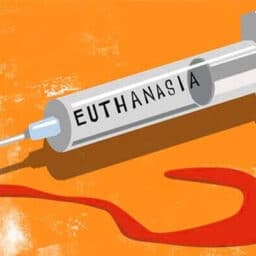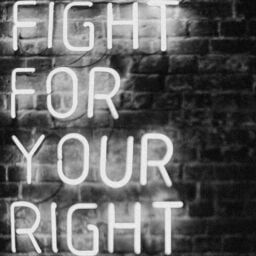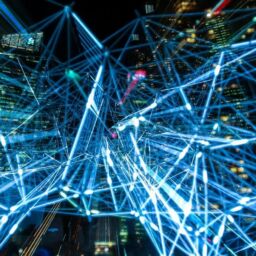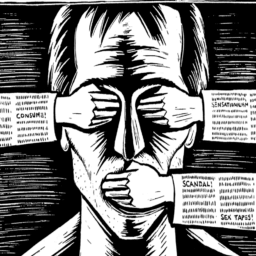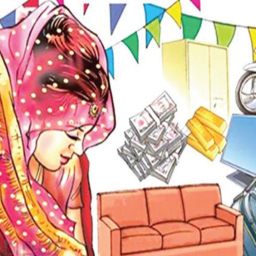INTRODUCTION
Everyone has the Right to life and liberty. Article 21[1] of the Constitution says that “No person shall be deprived of his life or personal liberty except according to procedure established by law”, which also includes the right to live in a society that is free from crimes and fear. Ultimately which gives people the right of witnesses to testify in courts without any pressure or fear from any party. But, do witnesses in India feel safe and protected? Do they have a legal remedy to make sure that their rights are not taken away from them?
We’ll understand this by reading about the importance of a witness and the protection programs and schemes that the legal system offers to the witnesses in India.
WHO IS A WITNESS?
‘Witness’ has not been defined in the Code of Criminal Procedure Code, 1908, or in the Indian Evidence Act, 1872. But is defined by the Black’s Law Dictionary as “A witness is a person who knows an event. As the most direct mode of acquiring knowledge of an event is by seeing it, ‘witness’ has acquired the sense of a person who is present at and observes a transaction.”[2]
A witness is a foundation of a trial. Someone who sees knows or one who gives declaration, having sworn to tell the truth face to face, orally or by a composed statement, and is familiar with the certainties and conditions of a case. He is, therefore, unavoidable and cannot be prevented or ignored in a case and plays an important role in providing justice and deciding the fate of the case.
The High Court of Delhi in the case of Ms. Neelam Katara v. Union of India[3] defined witness as: “Witness means a person whose statement has been recorded by the Investigating Officer under Section 161 of Cr.P.C.[4] about a crime punishable with death or life imprisonment”.
As in Vikas Kumar Roorkewal v. State Of Uttrakhand[5] which tells us about the role of witnesses in the criminal justice system of India. The court stated that witnesses play an important role in providing justice and protection to witnesses through legal measures in a fair trial.
A witness plays an important role in the court of law by presenting the evidence to the court in any civil or criminal.
WITNESS PROTECTION SCHEME, 2018
The Apex Court in the case of Mahendra Chawla & Ors. v. Union of India & Ors.,[6] approved the Witness Protection scheme and asked to enforce it in the country.
The aim and objective of the scheme are to guarantee that the examination, indictment, and trial of criminal offenses aren’t biased because witnesses are scared or terrified to testify without assurance or any type of protection. The Supreme Court of India has recently referred to the questions of ‘Witness Identity Protection’[7] and ‘Witness Protection Programmes’.
Witness Identity Protection may need during an examination and request preliminary while Witness Protection Programs apply to the actual insurance of the witness outside the Court. It is acknowledged today that Witness Identity Protection is fundamental on account of all genuine offenses wherein there is a threat to witnesses and it isn’t restricted to instances of psychological warfare or sexual offenses.
This plan endeavours at guaranteeing that witnesses get fitting and satisfactory security. This will go a long path in reinforcing the Criminal Justice System in the Country and will thus improve National Security Scenario.
WITNESS PROTECTION DURING TRIAL
So many measures are taken into consideration for the protection of a witness at the trial stage to make sure that the case is successfully prosecuted without compromising at the trial stage.
A few measures, like video declarations or the avoidance of the overall population from a meeting, are pointed toward securing the witness’ character, protection, and respect. Different measures, for instance, witness disguise or permitting witnesses to stay unknown, are pointed toward ensuring their actual security. These measures are expected to keep the charged or his associates from abusing the witness’ actual uprightness in the courtroom and, sometimes, from uncovering the witness’ character.
Different measures, which incorporate mysterious witness articulations or declaration behind screens, are excessive in situations where the dealer knows the personality of the witness. In different cases, in any case, the witness may have genuine motivations to fear for her or his wellbeing if the denounced, or others present in the courtroom, are educated regarding her or his name and address.
Courtroom-based witness insurance measures, for example, video-interface testimonies require specialized hardware, very much prepared staff, and sufficient monetary assets. Along these lines, adequate financing should be made accessible to the investigators and the courts to utilize them adequately.
CURRENT WITNESS SITUATION
The current situation of witnesses in India is very disturbing. A witness faces indignation, pressure, death threats and so much more so that they become enervated and then, even if they don’t want to they are forced to give wrong testimony in court which is in the favor of the accused. The situation of a witness in India is worse than how it is in any other country in the world. It is so shameful that a witness in India has to testify in court under the influence and fear of the accused parties. There are numerous cases where the witnesses have given their declaration which is intentionally vague and henceforth would be of no assistance in deciding the blame of the denounced. Witnesses don’t even have a legal remedy to make sure that their rights are not taken away from them.
In one of the biggest cases like the B.M.W. hit and run case[8] where witnesses have turned hostile not just because of dangers, intimidation, baits, money-related contemplations yet additionally dread of kidnapping and life. It barely should be underscored that one of the primary purposes behind witnesses to turn hostile is that they are not concurred proper security by the state.
CONCLUSION
Witnesses are an integral part of any case. They are quite possibly the main wellsprings of data in finding reality with regards to the case, however, the torments and inconveniences he has to go through to assist the court is a lot as well. By giving proof the witness assists the courts with giving the right judgment and equity.
The witnesses have the risk of their lives just like that of their families. They have the risk of their properties too. They need to go through heaps of uneasiness when they come to give proof. Even after doing all this, they don’t receive anything consequently. In this manner, it tends to be seen that the courts are negligent in the manner that they treat the witnesses.
But the part of witnesses in India all through various time assignments has recovered its importance and assurance in the criminal preliminaries. In the current situation, anyway, the regard and poise are lost during the time spent the preliminaries. Consequently, the Indian Legal framework needs to re-establish that regard and nobility to the witnesses to guarantee reasonable preliminaries and casualties being dealt with in an obvious sense.
Author(s) Name: Kartikeya Nain (Student, Bennett University, Greater Noida)
References:
[1] India Const. art. 21.
[2] Black Law Dictionary.
[3] Neelam Katara v. Union of India, (2003) ILR 2 Delhi 377.
[4] Cr.P.C. 1973, Section 116.
[5] Vikas Kumar Roorkewal v. State of Uttarakhand, (2011) 2 SCC 178.
[6] Mahendra Chawla & Ors. v. Union of India, (2019) 14 SCC 615.
[7] Mark Theoharis, What is the Witness Protection Programme, available at: https://www.criminaldefenselawyer.com/resources/criminal-defense/defendants-rights/what-witness-protection-program
[8] B.M.W. hit-and-run case: SC convicts Nanda, sentence not enhanced, Moneylife, https://www.moneylife.in/article/bmw-hit-and-run-case-sc-convicts-nanda-sentence-not-enhanced/27497.html (last accessed June 17, 2021).


